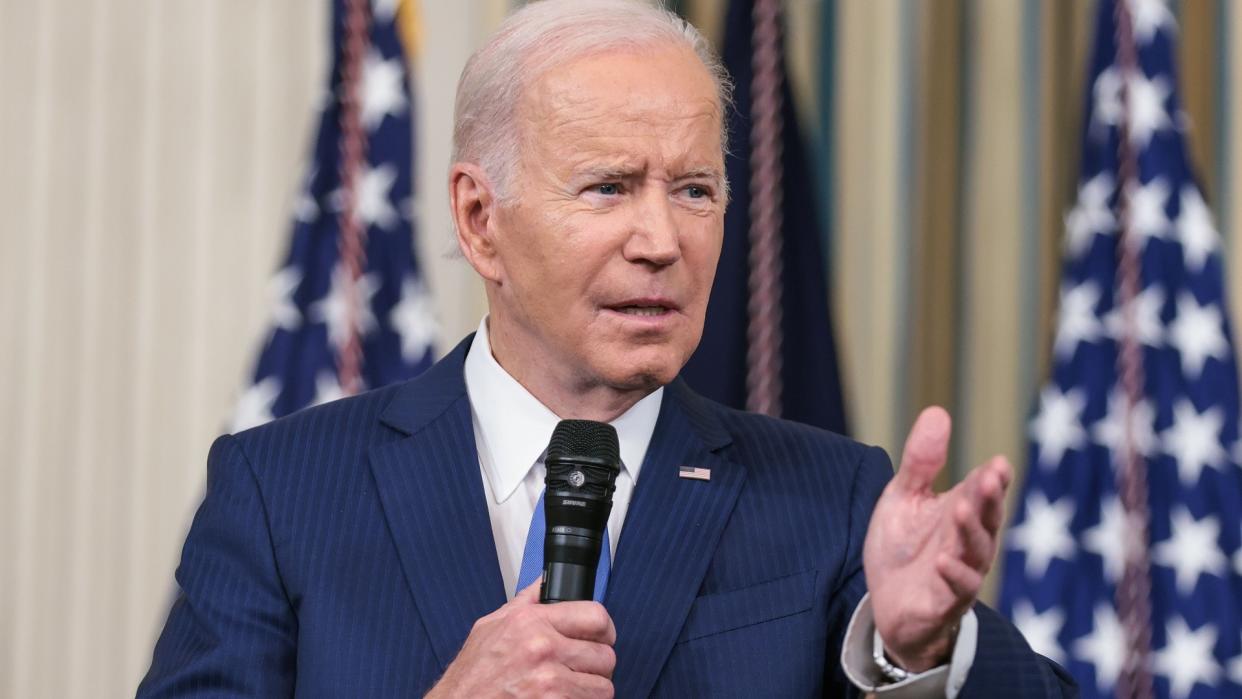If Biden’s Student Loan Forgiveness Plan Is Killed, What’s Next for Borrowers?

Federal student loan borrowers have been in a state of flux ever since last summer, when President Joe Biden first announced his intention to forgive up to $20,000 in debt per borrower through a massive loan forgiveness plan. Legal challenges to the plan have kept it from being implemented, prompting the administration to extend the federal student loan pause until a resolution is reached.
Read: 6 Big Shakeups to Social Security in 2023
Check Out: 8 Places in California Where Home Prices Have Plummeted
A lot more should be known toward the end of February, when the U.S. Supreme Court finally hears arguments about the forgiveness plan. The hearing is scheduled for Feb. 28 and will focus on two lawsuits challenging the legality of Biden’s plan.
While administration officials and others hold out hope that the SCOTUS will rule in favor of the plan, many observers doubt that will happen. The court’s conservative majority has already struck down other administrative emergency measures, Forbes reported.
If the student loan forgiveness plan is killed, then the 40 million borrowers who would benefit from it will have to wait even longer to see how things shake out.
The most immediate action Biden might take is to extend the student loan pause yet again, which would mark the eighth time it has been extended since it first went into effect in March 2020. The most recent extension is set to expire 60 days after either June 30 or whenever the Supreme Court decides on the loan forgiveness plan.
But as Forbes pointed out, extending the pause again could be tricky because all previous extensions were issued under emergency authority granted during the COVID-19 pandemic. The White House announced it would be ending the COVID-19 national emergency declaration on May 11, 2023, which could also end its authority to keep extending loan repayment pauses.
Live Richer Podcast: How To Get Rid of Your Student Loan Debt
Another possibility is that Biden will turn his focus to other loan forgiveness options such as income-driven repayment plans (IDRs). In January, the administration proposed new regulations to reduce federal student loan payments — especially for lower income and middle-income borrowers.
One proposal, the Revised Pay As You Earn (REPAYE) plan, offers $0 monthly payments for individual borrowers making less than about $30,600 a year, or borrowers in a family of four earning less than roughly $62,400. The U.S. Department of Education called it “the most affordable income-driven repayment plan that has ever been made available to student loan borrowers.”
But these types of plans could also come under further legal scrutiny if the loan forgiveness plan is struck down, according to Michael Brickman, adjunct fellow at the American Enterprise Institute. He told The Hechinger Report that such plans “have a limited authority granted by Congress” and could face more challenges in the future.
Biden might also decide to reissue the loan forgiveness plan under a different legal authority. As Forbes noted, borrower advocates and some student loan legal scholars have encouraged the administration to restart the program under a provision of the Higher Education Act (HEA), which also governs the federal student loan system.
The HEA gives broad authority to the Secretary of Education to “compromise, waive, or release any right, title, claim, lien, or demand” associated with federal student loans. One advantage of this option is that its legal authority doesn’t rely on a national emergency such as a pandemic.
Finally, the Biden administration could simply decide to scrap any further loan forgiveness plans and instead put its energy into bolstering other options such as IDRs and Public Service Loan Forgiveness (PSLF). But giving up on loan forgiveness altogether might have negative political consequences for the president.
″[Biden] will be launching his 2024 reelection campaign as America’s debt collector,” Astra Taylor, co-founder of the Debt Collective, told CNBC. Like Forbes mentioned, Taylor said Biden might instead decide to use a different law to justify his plan, such as the HEA.
More From GOBankingRates
This article originally appeared on GOBankingRates.com: If Biden’s Student Loan Forgiveness Plan Is Killed, What’s Next for Borrowers?
